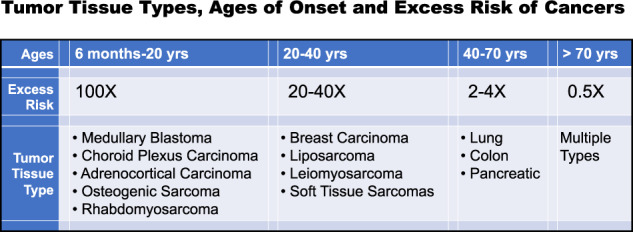Fig. 1. Tumor tissue types, ages of onset, and excess risk of cancers.

Li Fraumeni patients inherit a mutant TP53 allele that acts at an early age of onset (six months to 20 years) indicating that the mutant p53 protein functions as an initial or truncal mutation promoting benign cell replication and clonal expansion and producing a high excess risk for cancer. TP53 mutations that give rise to cancers later in life more likely function as a later mutation in an ordered series of mutant genes that drive cancerous growth. By 50–70 years of life, cancers arise with low excess risk and the mutant p53 protein acts in the benign to malignant transformation as the last gene in the ordered series of cancer forming mutations [9, 10, 27].
